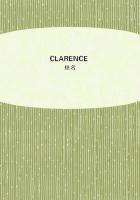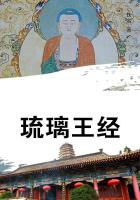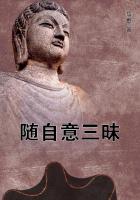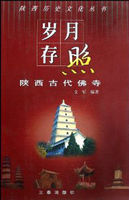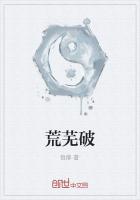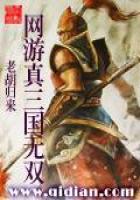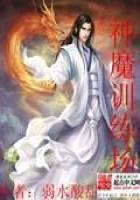It is well known that neither I nor the regiment of Hussars of Conflans were at Moscow.We were left behind on the lines of communication at Borodino.How the Emperor could have advanced without us isincomprehensible to me, and, indeed, it was only then that I understood that his judgment was weakening and that he was no longer the man that he had been.However, a soldier has to obey orders, and so I remained at this village, which was poisoned by the bodies of thirty thousand men who had lost their lives in the great battle.I spent the late autumn in getting my horses into condition and reclothing my men, so that when the army fell back on Borodino my Hussars were the best of the cavalry, and were placed under Ney in the rear-guard.
What could he have done without us during those dreadful days? "Ah, Gerard," said he one evening-- but it is not for me to repeat the words.Suffice it that he spoke what the whole army felt.The rear-guard covered the army and the Hussars of Conflans covered the rear-guard.There was the whole truth in a sentence.
Always the Cossacks were on us.Always we held them off.Never a day passed that we had not to wipe our sabres.That was soldiering indeed.
But there came a time between Wilna and Smolensk when the situation became impossible.Cossacks and even cold we could fight, but we could not fight hunger as well.Food must be got at all costs.That night Ney sent for me to the waggon in which he slept.His great head was sunk on his hands.Mind and body he was wearied to death.
"Colonel Gerard," said he, "things are going very badly with us.The men are starving.We must have food at all costs.""The horses," I suggested.
"Save your handful of cavalry; there are none left." "The band," said I.
He laughed, even in his despair."Why the band?" he asked."Fighting men are of value.""Good," said he."You would play the game down to the last card and so would I.Good, Gerard, good!"He clasped my hand in his."But there is one chance for us yet, Gerard." He unhooked a lantern from the roof of the waggon and he laid it on a map which was stretched before him."To the south of us," said he,"there lies the town of Minsk.I have word from a Russian deserter that much corn has been stored in the town- hall.I wish you to take as many men as you think best, set forth for Minsk, seize the corn, load any carts which you may collect in the town, and bring them to me between here and Smolensk.If you fail it is but a detachment cut off.If you succeed it is new life to the army."He had not expressed himself well, for it was evident that if we failed it was not merely the loss of a detachment.It is quality as well as quantity which counts.
And yet how honourable a mission and how glorious a risk! If mortal men could bring it, then the corn should come from Minsk.I said so, and spoke a few burning words about a brave man's duty until the Marshal was so moved that he rose and, taking me affectionately by the shoulders, pushed me out of the waggon.
It was clear to me that in order to succeed in my enterprise I should take a small force and depend rather upon surprise than upon numbers.A large body could not conceal itself, would have great difficulty in getting food, and would cause all the Russians around us to concentrate for its certain destruction.On the other hand, if a small body of cavalry could get past the Cossacks unseen it was probable that they would find no troops to oppose them, for we knew that the main Russian army was several days' march behind us.This corn was meant, no doubt, for their consumption.A squadron of Hussars and thirty Polish Lancers were all whom I chose for the venture.That very night we rode out of the camp, and struck south in the direction of Minsk.
Fortunately there was but a half moon, and we were able to pass without being attacked by the enemy.Twice we saw great fires burning amid the snow, and around them a thick bristle of long poles.These were the lances of Cossacks, which they had stood upright while they slept.It would have been a great joy to us to have charged in amongst them, for we had much to revenge, and the eyes of my comrades looked longingly from me to those red flickering patches in the darkness.My faith, I was sorely tempted to do it, for it would have been a good lesson to teach them that they must keep a few miles between themselves and a French army.It isthe essence of good generalship, however, to keep one thing before one at a time, and so we rode silently on through the snow, leaving these Cossack bivouacs to right and left.Behind us the black sky was all mottled with a line of flame which showed where our own poor wretches were trying to keep themselves alive for another day of misery and starvation.
All night we rode slowly onward, keeping our horses' tails to the Pole Star.There were many tracks in the snow, and we kept to the line of these, that no one might remark that a body of cavalry had passed that way.
These are the little precautions which mark the experienced officer.Besides, by keeping to the tracks we were most likely to find the villages, and only in the villages could we hope to get food.The dawn of day found us in a thick fir-wood, the trees so loaded with snow that the light could hardly reach us.When we had found our way out of it it was full daylight, the rim of the rising sun peeping over the edge of the great snow- plain and turning it crimson from end to end.I halted my Hussars and Lancers under the shadow of the wood, and I studied the country.Close to us there was a small farm-house.Beyond, at the distance of several miles, was a village.Far away on the sky-line rose a considerable town all bristling with church towers.This must be Minsk.In no direction could I see any signs of troops.It was evident that we had passed through the Cossacks and that there was nothing between us and our goal.A joyous shout burst from my men when I told them our position, and we advanced rapidly toward the village.

